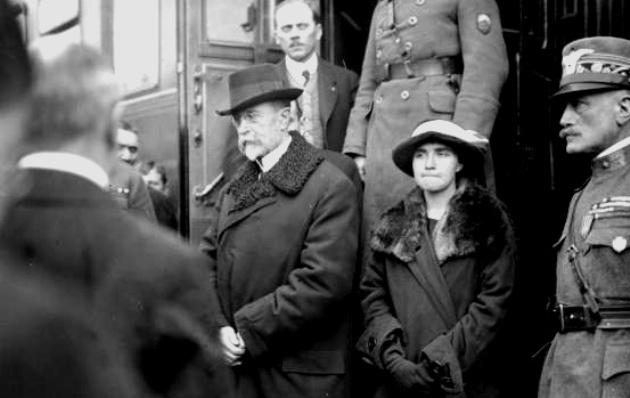Pandemic cancels Czech celebrations of 102nd anniversary of an independent Czechoslovakia

Today the Czech Republic is marking the 102nd anniversary of the declaration of an independent Czechoslovakia at the close of the First World War, a state holiday that is traditionally accompanied by events both celebratory and reverent – but this year, most have been cancelled because of the novel coronavirus pandemic. On 28 October 1918, independence was officially declared on Wenceslas Square in Prague and a new chapter of history began for the nations of the former Austria-Hungary.
Most of Czech society had never accepted the Austro-Hungarian state as their own. When World War I was declared in 1914, ethnic issues in the heteregenous Austria-Hungary were marginalized.
The beginning efforts of Czech politicians to push for independence were immediately nipped in the bud through repression, so the domestic Czech political scene was more or less silenced. The only genuine “war against the central power” was waged by Czechs in exile, led by the future first Czechoslovak President, T. G. Masaryk, and a close circle of his followers who, under the leadership of Edvard Beneš, created a secret organization they called the “Mafia”.
Despite extensive censorship, actors, authors and journalists also made a significant contribution to the independence effort. During 1916, Masaryk, Beneš and Slovak politician M. R. Štefánik established what would later become the Czechoslovak National Council, the main representative of the anti-Austrian resistance.
Those seeking independence found strong support among members of the Czechoslovak Legion, which was most significantly applied on the Russian southwestern front in 1917 during the battle of Zborov. Czech domestic public opinion in favor of independence did not radicalize until the beginning of 1917.
The “Czech Writers’ Manifesto”, written in May 1917 by Jaroslav Kvapil, a dramaturg with the Czech National Theater who was a member of the “Mafia” and a poet, had a great deal of influence over the situation. However, politicians based on the territory of what would later become Czechoslovakia did not appear on the scene in favor of independence until the “Three Kings’ Declaration” at the beginning of January 1918.
That declaration initiated a common procedure for achieving independence among those working both abroad and at home. As part of the declaration and preservation of independence, one of the most burning questions was that of foodstuffs being exported from the Czech lands to supply the Austrian military.
The Provincial Economic Council, led by Antonín Švehla, was intensively involved with that issue and attempted to keep the existence of such supplies secret so they would not be exported. In response to the crisis, a general strike was announced on 14 October 1918, and that day a flier was distributed in the town of Písek announcing that a republic had been declared.
During the overthrow of the Austro-Hungarian authorities, symbols of their power were pulled down and the red, white and blue tricolor was flown in the town. That same day it was decided to postpone the official declaration of independence, so the revolutionary crowd scattered and a division of Hungarian soldiers was sent there.
The Austro-Hungarian monarchy lasted just another 14 days. On the morning of 28 October 1918, František Soukup and Antonín Švehla took over the Grain Institute in the name of the National Committee in order to prevent the export of grain to the front.
Later that day the news spread that Austria-Hungary had acknowledged the conditions for peace. In the evening of 28 October 1918, the National Committee published its first law on the establishment of an independent state.
Those chosen for the presidium of the National Committee were Alois Rašín, František Soukup, Jiří Stříbrný, Vavro Šrobár and Antonín Švehla. Two weeks before the war’s end, the country of Czechoslovakia was born, and to this day the period from 28 October 1918 until the Munich Agreement in 1938 is referred to as the First Republic.
Czechoslovakia included the territories of Bohemia, Moravian, Czech Silesia (the southern part of Silesia), Slovakia and Ruthenia. More than half a dozen languages were spoken on Czechoslovak territory: Czech, German, Hungarian, Polish, Romanes, Romanian, Ruthenian, Slovak, Ukrainian dialects of different kinds, Yiddish, etc.
One of the main ways the events of 28 October have been commemorated ever since has been an annual ceremony at the National Monument in Prague on the Vítkov Hill, but this year the Defense Ministry cancelled the usual gathering. Politicians have nevertheless been visiting the monument individually, following a staggered schedule to avoid crossing paths in the courtyard.
The commemoration is being held without military honors – no honor guard, no wreath-bearers, no military music, and no historical banners. Police officers are guarding the monument today.
